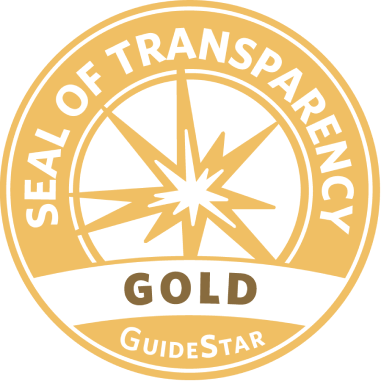Access to mental health resources is a significant challenge for individuals living in remote or underserved areas. For women dealing with trauma in such regions, the obstacles are even greater due to limited infrastructure, cultural stigmas, and systemic barriers. However, the rise of online tools and digital platforms is transforming how trauma can be managed, making support more accessible than ever before.
At the Omid Foundation, we recognize the importance of leveraging technology to support women in their recovery journeys, especially those in areas where traditional resources are scarce. This article explores the role of online tools in trauma management, their benefits, and how they can be used to empower women living in remote areas.
The Challenges of Accessing Trauma Care in Remote Areas
Women in remote regions face unique challenges when it comes to accessing mental health care, including:
- Geographical Barriers: Physical distance from healthcare facilities makes it difficult to attend therapy sessions or access support groups.
- Cultural Stigmas: In some communities, seeking help for trauma is viewed as a sign of weakness, deterring women from reaching out.
- Economic Constraints: Limited financial resources often make mental health care unaffordable.
- Shortage of Specialists: Many remote areas lack trained mental health professionals, leaving women without qualified support.
These challenges highlight the need for innovative solutions that bridge the gap between women and the resources they need.
How Online Tools Are Changing Trauma Management
The internet has revolutionized mental health care by providing tools and platforms that overcome traditional barriers. For women in remote areas, these resources offer a lifeline to support, connection, and healing.
- Teletherapy Platforms
Teletherapy allows individuals to access licensed therapists through video calls, phone calls, or messaging apps. Platforms like BetterHelp, Talkspace, and similar localized services are making therapy more accessible.
Benefits of Teletherapy:
Eliminates the need for travel, saving time and money.
Provides access to a broader range of specialists, including trauma-focused therapists.
Offers anonymity and privacy, reducing stigma.
For women in conservative or rural communities, teletherapy can provide a discreet way to seek help without fear of judgment.
- Mental Health Apps
Mental health apps are designed to help individuals manage their emotions, track their progress, and practice self-care. These apps are often affordable or free, making them accessible to women with limited financial resources.
Popular Apps for Trauma Management:
Calm: Focuses on relaxation and mindfulness through guided meditations.
Moodfit: Helps track mood patterns and offers tools for stress management.
PTSD Coach: Specifically designed for trauma survivors, providing coping strategies and resources.
These apps empower women to take an active role in their recovery, even in the absence of professional support.
- Online Support Groups
Connection with others who have experienced similar struggles is a vital part of trauma recovery. Online support groups and forums provide a safe space for women to share their stories and find solidarity.
Benefits of Online Support Groups:
Offer emotional validation and understanding from peers.
Provide access to global networks, broadening perspectives.
Allow participation at any time, accommodating different schedules.
Organizations like Omid Foundation facilitate online communities where women can connect and support each other, fostering a sense of belonging and hope.
- Educational Resources and Webinars
Knowledge is a powerful tool for healing. Online platforms offer a wealth of educational resources, including articles, videos, and webinars on trauma recovery.
Examples of Online Educational Tools:
Webinars by Trauma Specialists: Provide insights into coping mechanisms and recovery strategies.
Online Courses: Teach skills like mindfulness, stress management, and self-compassion.
Resource Libraries: Contain articles and guides tailored to women’s experiences.
These resources empower women with the information they need to understand and navigate their trauma.
- Social Media and Awareness Campaigns
Social media platforms like Instagram, Facebook, and TikTok are being used to spread awareness about trauma and mental health. They also connect women with online communities and professionals.
Advantages of Social Media in Trauma Recovery:
Raises awareness and reduces stigma around trauma.
Provides access to motivational content and coping tips.
Enables interaction with therapists, coaches, and peers.
By following reputable accounts and participating in discussions, women can gain valuable insights and support.
Building Trust in Online Tools
While online tools offer immense potential, they also come with challenges such as mistrust of digital platforms, concerns about privacy, and a lack of digital literacy. Addressing these issues is crucial for ensuring that online resources are effective and accessible.
Overcoming Barriers to Trust:
- Ensuring Confidentiality: Platforms must prioritize user privacy and data protection. Women need to feel secure that their information will remain confidential.
- Improving Digital Literacy: Providing basic training on how to use digital tools can empower women to take full advantage of online resources.
- Promoting Culturally Sensitive Content: Online tools should be designed with cultural contexts in mind to ensure relevance and accessibility.
The Omid Foundation integrates digital literacy programs into its services, helping women feel confident and comfortable using online tools.
Success Stories: Online Tools in Action
The transformative power of online tools is evident in the stories of women who have used them to overcome trauma and rebuild their lives.
Sara’s Story: Finding Hope in Teletherapy
Living in a remote village with no access to counseling services, Sara struggled with anxiety and depression after escaping an abusive relationship. Through a teletherapy platform, she connected with a trauma specialist who guided her through the healing process.
With her therapist’s help, Sara developed coping strategies and gradually rebuilt her confidence. Today, she uses her experience to inspire other women in her community to seek support.
Amina’s Journey: Healing Through an App
Amina discovered the PTSD Coach app after experiencing workplace harassment. The app’s grounding exercises and stress management tools helped her regain control over her emotions.
By incorporating these practices into her daily routine, Amina found relief from her symptoms and began advocating for workplace mental health initiatives.
Fatemeh’s Connection: Support Through Online Groups
Isolated by cultural stigma, Fatemeh found solace in an online support group for trauma survivors. The group provided a safe space for her to share her experiences and receive encouragement.
Through these connections, Fatemeh gained the strength to pursue therapy and eventually became a mentor for other women in the group.
The Role of Organizations in Facilitating Access
Organizations like the Omid Foundation play a critical role in ensuring that online tools reach the women who need them most.
How Omid Supports Digital Access:
Providing digital literacy training to women in remote areas.
Partnering with tech companies to make tools more accessible.
Offering culturally relevant online programs tailored to women’s unique experiences.
By bridging the digital divide, we empower women to take control of their recovery and build brighter futures.
Conclusion
Online tools have revolutionized trauma management, offering hope and healing to women in remote areas. From teletherapy platforms to mental health apps, these resources break down barriers and provide essential support.
At the Omid Foundation, we are committed to leveraging technology to empower women on their recovery journeys. By combining digital innovation with compassion and cultural sensitivity, we can ensure that every woman—no matter where she lives—has the opportunity to heal, grow, and thrive.
The future of trauma recovery is connected, inclusive, and empowering. Together, we can build a world where no woman has to face trauma alone.

